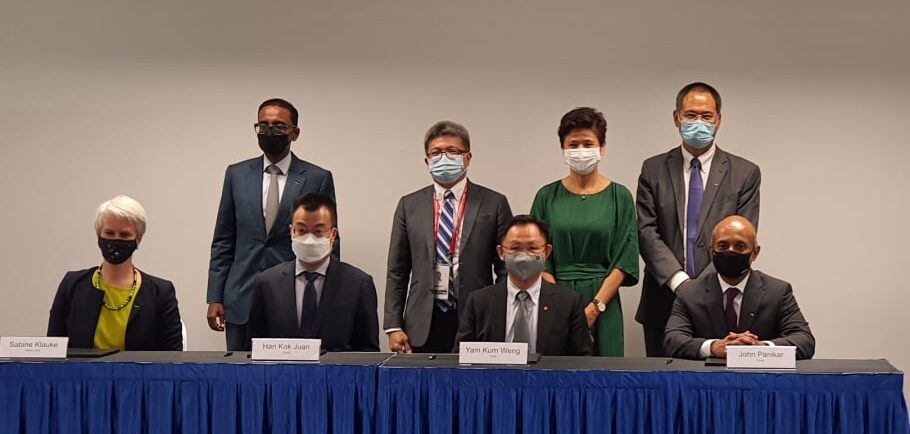Airbus has agreed to develop feasibility studies for airport hydrogen hubs with Changi Airport Group (CAG) and Società per azioni Esercizi Aeroportuali (SEA), operator of Milano Linate and Milano Malpensa airports in Italy.
The European aerospace company is collaborating with airports to enable the transition to a climate-neutral aviation ecosystem as part of its strategy to decarbonize the air transportation industry. The ZEROe project, its initiative for exploring zero-emission technologies for future aircraft, plays a major role in this.
Airbus aims to produce the first hydrogen-powered aircraft by 2035 and these feasibility studies are to be carried out to prepare airports with the appropriate facilities to supply hydrogen to the new aircraft to meet this target.
Changi Airport Group (CAG) has signed a collaboration agreement with Airbus, the Civil Aviation Authority of Singapore (CAAS) and Linde to jointly develop a feasibility study for an airport hydrogen hub at Singapore Changi Airport.
The two-year study will examine the infrastructure and supply solutions needed to support hydrogen-powered aircraft and airport operations at Changi Airport. These requirements include the production, storage and distribution of hydrogen in aircraft ground services, operational equipment and refueling systems. In particular, CAG will be involved in assessing the feasibility of hydrogen fuel cells in supporting airport operations, and establishing regulations and standards for the safe adoption of hydrogen technologies.
The agreement was signed at the Singapore Airshow 2022 by Yam Kum Weng, CAG executive vice president for airport development; Dr Sabine Klauke, Airbus chief technical officer; Han Kok Juan, CAAS director-general; and John Panikar, Linde executive vice president, APAC. Yam said, “Sustainability is a key focus area for CAG as we strive toward making Changi Airport a sustainable air hub, with the longer-term aspiration toward net zero carbon by 2050. We look forward to this collaboration to explore innovations that enable hydrogen-powered aircraft and ground operations at Changi Airport in the future.”
Airbus has also signed a memorandum of understanding (MOU) with SEA for the study and implementation of projects for the distribution of hydrogen at Milan’s airports. This agreement will also focus on a series of feasibility studies aimed at developing a hydrogen refueling hub for non-aviation use in the short term, as well as developing infrastructure for hydrogen use in aviation in the long term.
Armando Brunini, CEO of SEA, said, “With this agreement, SEA has taken a concrete step forward in enabling important solutions for the decarbonization of airports and the entire industry. We are going through an important transition and have chosen to be at the forefront of it, together with our partners. Innovation is in the DNA of aviation and, also thanks to Airbus, is moving toward a transformation that was unimaginable up to just a few years ago. We are proud to be part of it.”

